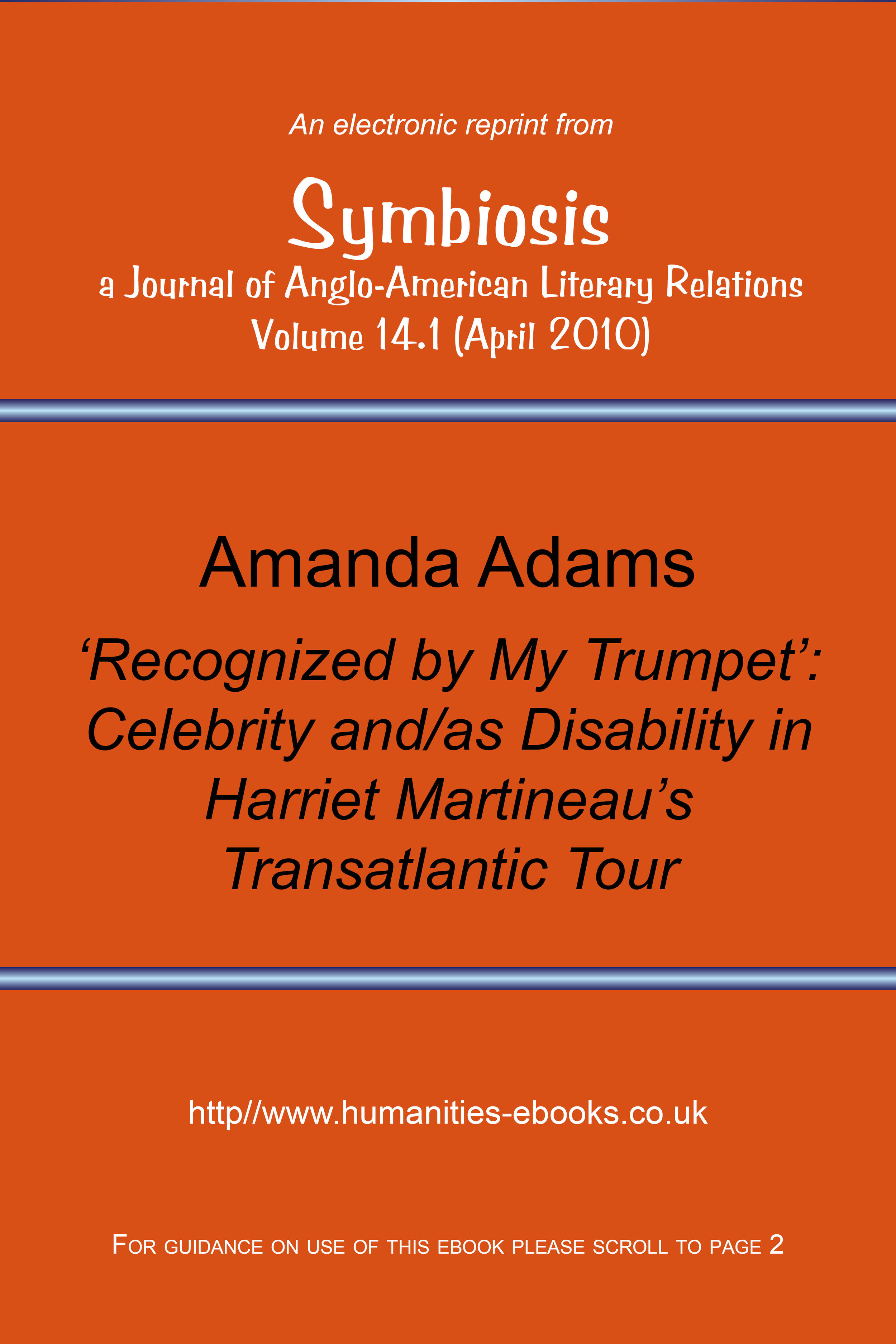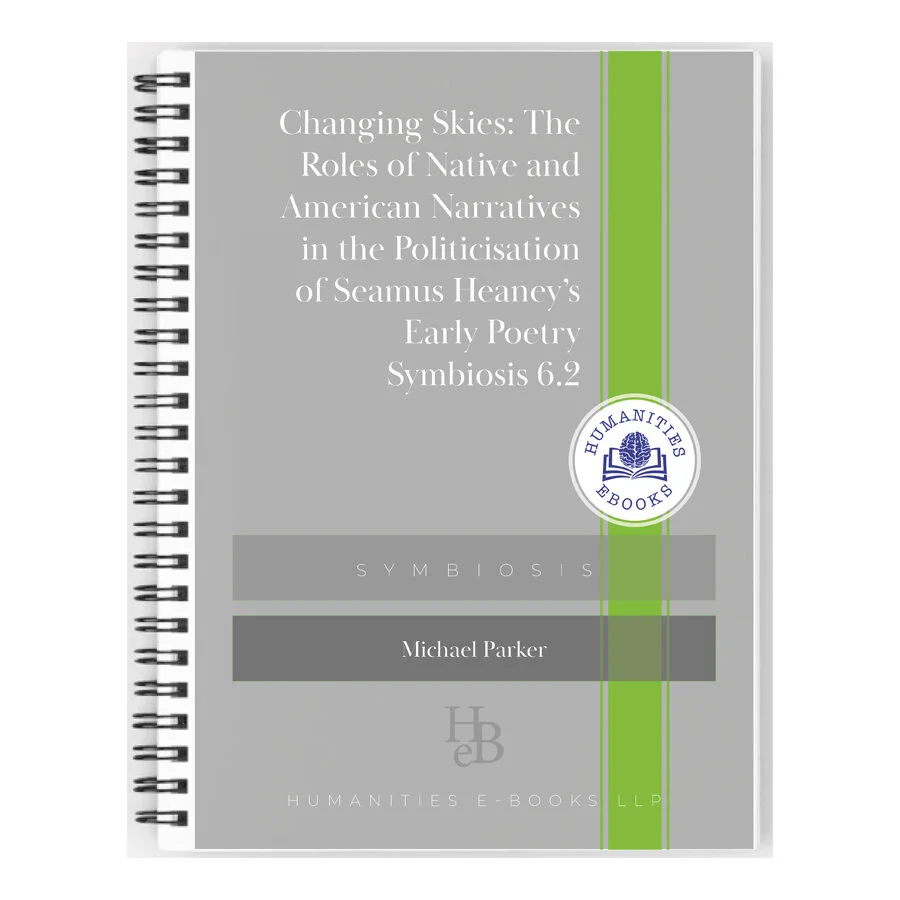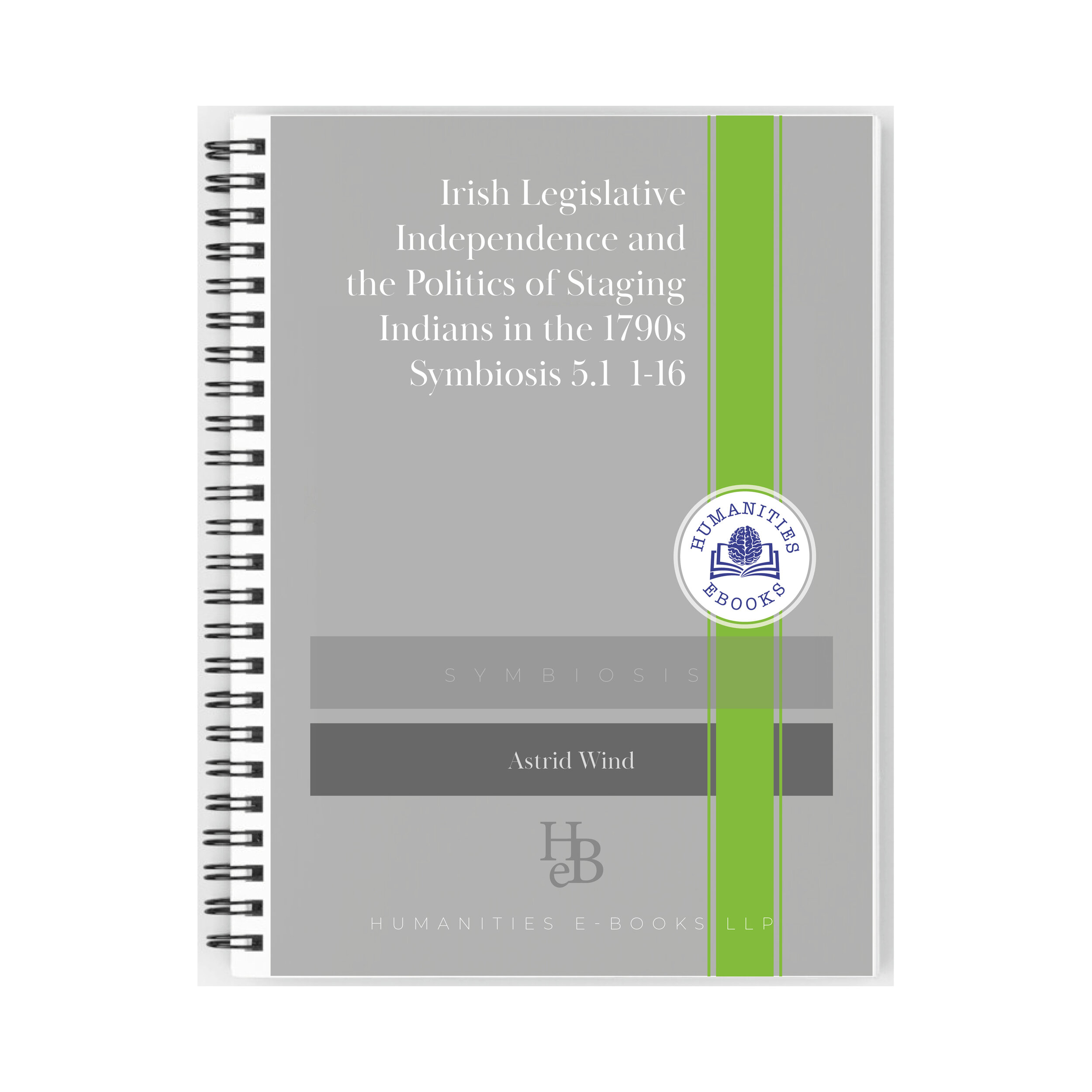Looking Good: Neutralizing the Desiring (Black Male) Gaze in Alice Walker's Meridian
Symbiosis 13.2
Author: Guy Mark Foster
Pages: 31
Guy Mark Foster's essay "Looking Good: Neutralizing the Desiring (Black Male) Gaze in Alice Walker’s Meridian" examines the complexities of gender, race, and sexual dynamics in Alice Walker's novel "Meridian". Foster explores how Walker subverts the conventional male gaze, especially within the context of black male and female relationships, and highlights the novel's challenge to patriarchal structures. This essay is essential for readers interested in literary criticism, African American literature, feminist theory, and gender studies.
Symbiosis 13.2
Author: Guy Mark Foster
Pages: 31
Guy Mark Foster's essay "Looking Good: Neutralizing the Desiring (Black Male) Gaze in Alice Walker’s Meridian" examines the complexities of gender, race, and sexual dynamics in Alice Walker's novel "Meridian". Foster explores how Walker subverts the conventional male gaze, especially within the context of black male and female relationships, and highlights the novel's challenge to patriarchal structures. This essay is essential for readers interested in literary criticism, African American literature, feminist theory, and gender studies.
Symbiosis 13.2
Author: Guy Mark Foster
Pages: 31
Guy Mark Foster's essay "Looking Good: Neutralizing the Desiring (Black Male) Gaze in Alice Walker’s Meridian" examines the complexities of gender, race, and sexual dynamics in Alice Walker's novel "Meridian". Foster explores how Walker subverts the conventional male gaze, especially within the context of black male and female relationships, and highlights the novel's challenge to patriarchal structures. This essay is essential for readers interested in literary criticism, African American literature, feminist theory, and gender studies.









